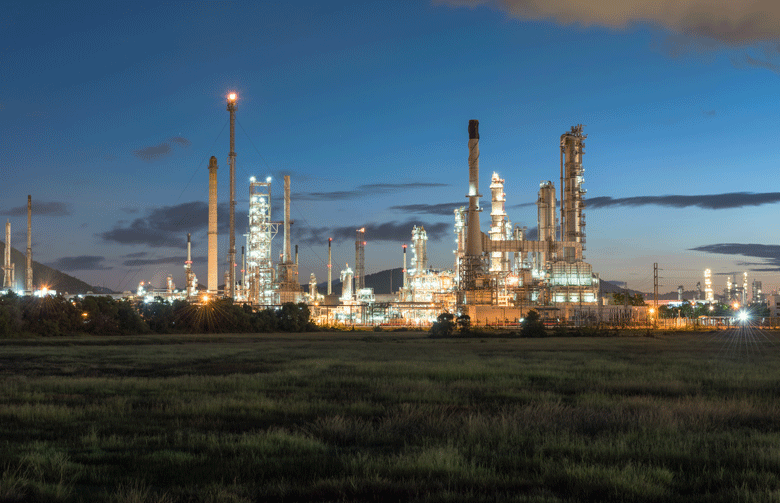

The joint venture of Saudi Aramco, Abu Dhabi National Oil Company (Adnoc) and three state-owned companies has given an August deadline to India’s Maharashtra state government to allocate land for its $44bn downstream project.
Aramco and Adnoc each own 25 per cent stakes in the JV entity called Ratnagiri Refinery & Petrochemicals Limited (RRPCL). Indian Oil Corporation holds another 25 per cent, and Bharat Petroleum and Hindustan Petroleum hold 12.5 per cent stakes each.
The Maharashtra state government had earlier said it would provide alternative land for the megaproject in Raigad district, close to the state capital Mumbai, after land could not be secured in Ratnagiri district where the project was originally planned to be built.
“Going by the present timetable, the first phase will be commissioned by 2025. Delaying this further is just not worth anyone’s while,” The Hindu quoted a local industry source as saying.
The megaproject will feature a giant refinery with a capacity of 1.2 million barrels a day and a petrochemicals plant that will produce 18 million tonnes of petrochemical products a year.
“Two years have already gone by and it is pointless to keep things hanging for so long,” the source said.
According to a local media report, RRPCL has indicated to the Maharashtra government that it will move out of the western state and set up the project in the neighbouring state of Gujarat, if land is not acquired by August.
“If this does not happen, then business-friendly states like Gujarat could emerge as viable alternatives,” said the source.
The downstream project has been caught up in protests and political quagmire since inception.
Ratnagiri, which lies along India’s Arabian Sea coast, about 250 kilometres north of Goa, is known for its Alphonso mangoes, cashew plantations and a thick coastal mangrove cover that is home to several flora and fauna species.
Supported by environmental activists and pressure groups, local farmers and plantation owners in Ratnagiri have agitated against the project, citing reasonable threat to agricultural livelihood as well as the ecology of the coastal district.
Opposition political parties in Maharashtra have tried to gain political dividends against the state government, led by the Bharatiya Janata Party (BJP), by opposing the project and joining in the protests.
In the wake of the general elections in India in April-May, the Maharashtra government shied away from wading further into the political controversy.
With Prime Minister Narendra Modi-led BJP voted back to power at the federal parliament, RRPCL is now upping the ante on both the national and Maharashtra state governments to fast-track the downstream project.
Aramco CEO Amin Nasser in February said he remains positive about the energy giant’s investment in the project, and is working with its Indian partners.
The Indian stakeholders are “assuring us that things are going very well”, Nasser said in New Delhi.
“I think if there is any delay, we can catch up. All we hear lately is that things are progressing well and we should be optimistic about it going forward,” he said when asked by the media if searching for an alternative site would delay the project beyond the agreed deadline of 2025.
| This article has been unlocked to allow non-subscribers to sample MEED’s content. MEED provides exclusive news, data and analysis on the Middle East every day. For access to MEED’s Middle East business intelligence, subscribe here |
You might also like...

Rainmaking in the world economy
19 April 2024

Oman receives Madha industrial city tender prices
19 April 2024

Neom seeks to raise funds in $1.3bn sukuk sale
19 April 2024

Saudi firm advances Neutral Zone real estate plans
19 April 2024
A MEED Subscription...
Subscribe or upgrade your current MEED.com package to support your strategic planning with the MENA region’s best source of business information. Proceed to our online shop below to find out more about the features in each package.





